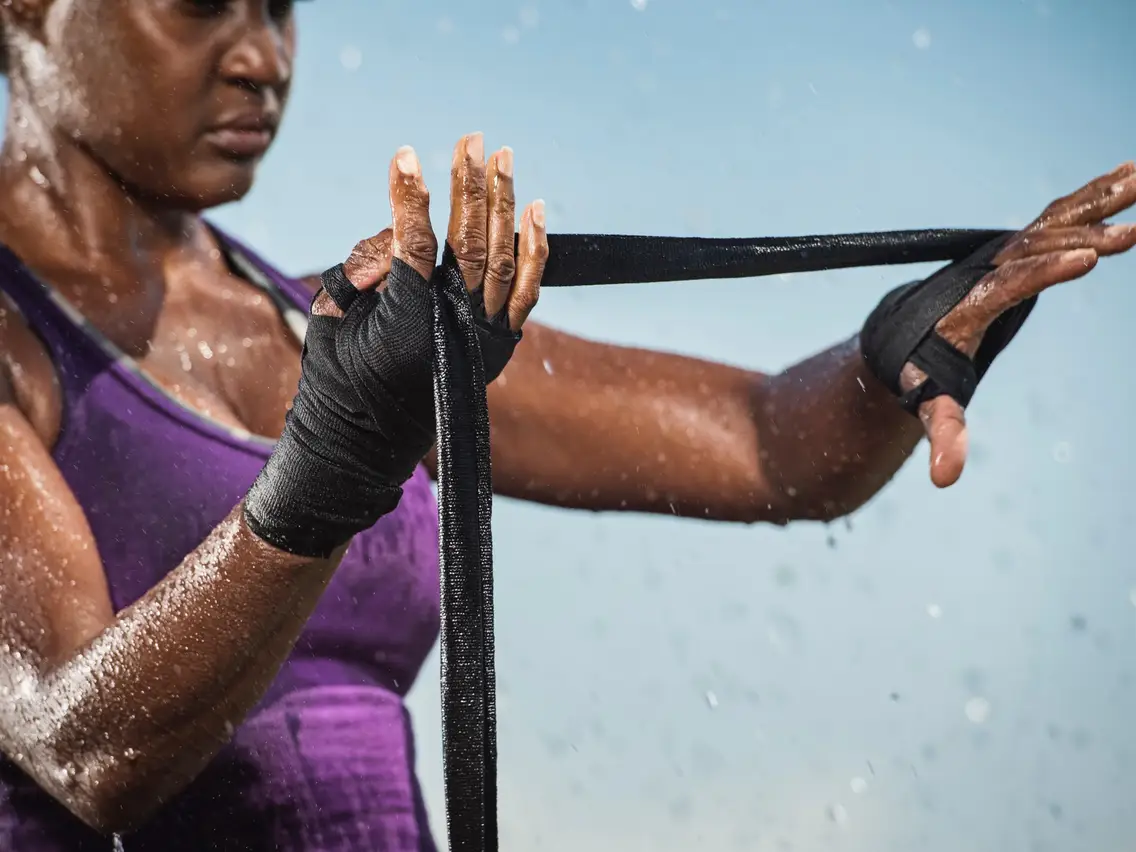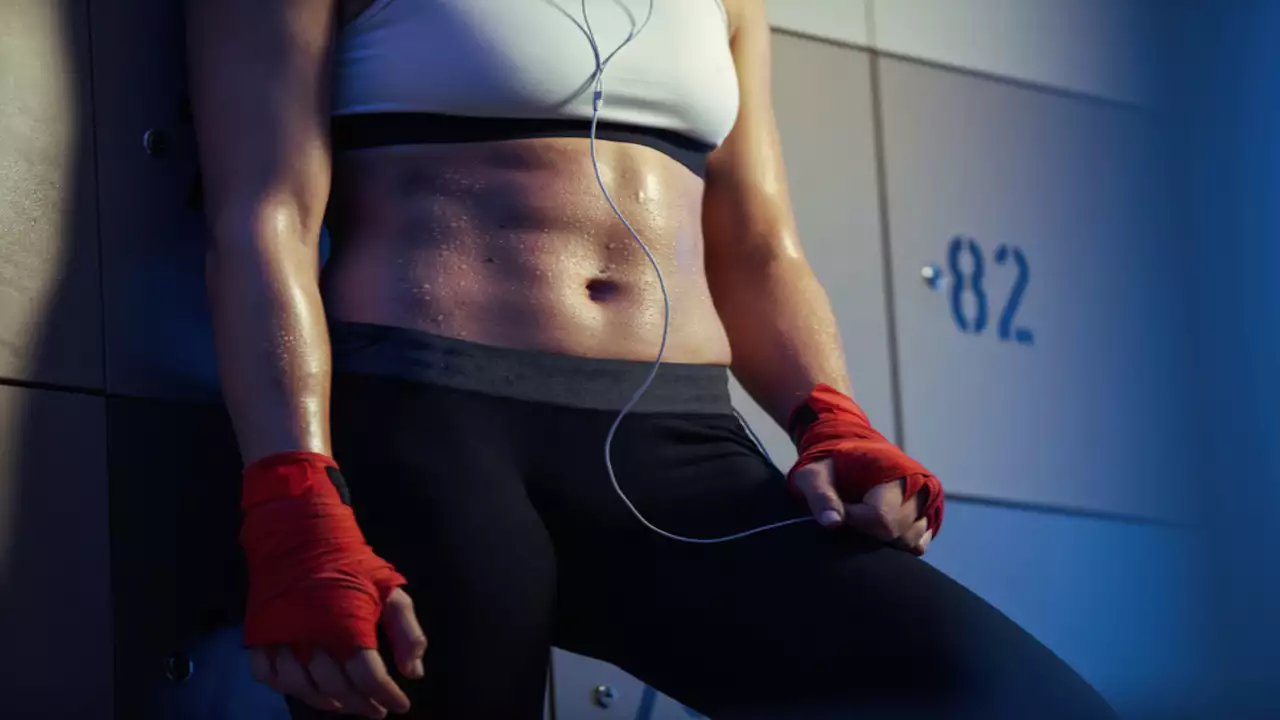We all sweat, whether working out hard or enjoying the sun. But did you ever think about why sweating during exercise is good for us? It’s not just about cooling down; sweating actually helps our overall well-being. In this post, we’ll share why breaking a sweat is great for your body. From getting rid of toxins to making you feel happier, sweating is more than just a way for your body to cool off. So, let’s find out the awesome benefits of sweating during exercise and discover why it’s one of the best things you can do for yourself.

Contents
7 Benefits of sweating during exercise
Sweating during exercise is not only a natural process but also has numerous benefits for your overall health and well-being. Here are some of the key advantages of sweating during your workouts:
- Regulation of Body Temperature: Sweating helps regulate your body temperature and prevents overheating during exercise. As you work out, your body produces heat, and sweating helps dissipate that heat, keeping you cool and comfortable.
- Detoxification: Sweating plays a crucial role in detoxifying your body. When you perspire, you eliminate toxins, heavy metals, and pollutants through your skin. Regular exercise-induced sweating can aid in flushing out these harmful substances, promoting a cleaner and healthier body.
- Improved Skin Health: Sweating has been found to have positive effects on your skin. It helps unclog pores, and remove dirt, and dead skin cells, resulting in a clearer complexion. Additionally, sweating promotes the production of natural oils, which can help moisturize and nourish your skin.

- Boosted Endurance and Performance: Sweating during exercise can enhance your endurance and overall athletic performance. When you sweat, your body cools down, allowing you to exert yourself for longer periods without overheating. This can lead to improved stamina, enabling you to push through challenging workouts and achieve better results.
- Stress and Anxiety Reduction: Sweating during exercise has proven benefits in reducing stress and anxiety. Physical activity releases endorphins, which are known as “feel-good” hormones. These endorphins, combined with sweating, help alleviate stress and promote a sense of calm and relaxation.
- Enhanced Immune System: Regular exercise-induced sweating can boost your immune system. Sweating helps eliminate toxins from your body, which can strengthen your immune response. Additionally, sweating increases blood circulation, allowing immune cells to travel more efficiently throughout your body.
- Improved Sleep Quality: Sweating during exercise can contribute to better sleep quality. When you work up a sweat, your body temperature rises, and post-exercise cooling down can induce a state of relaxation, making it easier to fall asleep and enjoy a more restful night’s sleep.
Why Do We Sweat During Exercise?
Sweating during exercise is your body’s way of staying cool, like a built-in air conditioner! Here’s how it works:
Internal Heat Rise: As you exercise, your muscles work hard and generate heat. Your body temperature starts to rise, which can be dangerous if it gets too high.
Sweating to the Rescue: When your internal temperature hits a certain point, your brain sends signals to sweat glands in your skin. These glands produce a salty liquid called sweat.
Evaporation is Key: As sweat beads up on your skin, it starts to evaporate. This process absorbs heat from your body, effectively lowering your temperature. The cooler air surrounding you helps the sweat evaporate faster, further aiding the cooling process.
Tips for Maximizing the Benefits of Sweating
To make the most out of your sweat sessions, here are some practical tips to optimize the benefits of sweating during exercise:

- Stay Hydrated: Sweating leads to fluid loss, so it’s crucial to stay hydrated before, during, and after your workout. Drink plenty of water to replenish the fluids you’ve lost. Dehydration can lead to decreased performance, muscle cramps, and fatigue. Aim to drink at least 8-10 cups of water per day, and increase your intake during intense workouts.
- Dress Appropriately: Choose sweat-wicking and breathable fabrics for your workout attire. These materials help to draw moisture away from your body, allowing sweat to evaporate quickly and keep you cool. Avoid wearing cotton, as it can retain moisture and make you feel uncomfortable during your workout.
- Warm Up and Cool Down: Before starting your exercise routine, always warm up your body. This helps to increase blood flow and prepares your muscles for the upcoming workout. After exercising, take time to cool down and stretch. This promotes muscle recovery and helps reduce post-workout soreness.
- Pace Yourself: Pushing your limits during exercise is essential for progress, but it’s important to listen to your body and avoid overexertion. Gradually increase the intensity and duration of your workouts to prevent injuries and allow your body to adapt to the increased demands.
- Incorporate Interval Training: High-intensity interval training (HIIT) is an effective way to maximize sweating and boost calorie burn. Alternating between intense bursts of activity and short recovery periods can elevate your heart rate and lead to increased sweat production.
Frequently Asked Questions
Does sweating make you look leaner?
No, sweating itself does not make you look leaner. After working out and sweating, your body may temporarily appear leaner due to water loss, but this is not indicative of fat loss.
Can you lose belly fat by sweating?
No, sweating alone does not directly lead to belly fat loss. Sweating is the body’s way of regulating temperature and expelling excess heat. Weight loss from sweating is primarily water weight, not fat loss.
Does sweating remove toxins?
No, the primary purpose of sweating is to cool down the body through the evaporation of sweat. Sweating is not a process that specifically eliminates toxins from the body.

Hello, I’m Ravindra. Over the years, I’ve immersed myself deeply into the world of fitness and health, transforming both my body and mind. Writing has allowed me to share my journey, insights, and expertise with those just starting out and seasoned fitness enthusiasts alike. Beyond just routines and diets, I believe in inspiring others to adopt a holistic approach to well-being.
